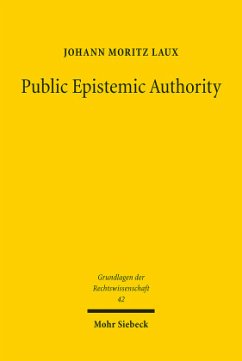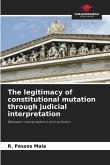Inter- and supranational courts derive their legitimacy partly from an institutional comparison: judges' legal expertise and the quality of judicial procedures justify a court's claim to authority towards other branches of government and other courts with overlapping jurisdiction. To provide a benchmark for assessing judicial outcomes that is compatible with democratic commitments, Johann Laux suggests a new normative category, Public Epistemic Authority (PEA). It builds on the mechanisms behind theories of collective intelligence and empirical research on judicial decision-making. PEA tracks judges' collective ability to reliably identify breaches of law. It focuses on cognitive tasks in adjudication. The author applies PEA to the Court of Justice of the European Union and offers suggestions for improving its institutional design.
Bitte wählen Sie Ihr Anliegen aus.
Rechnungen
Retourenschein anfordern
Bestellstatus
Storno








